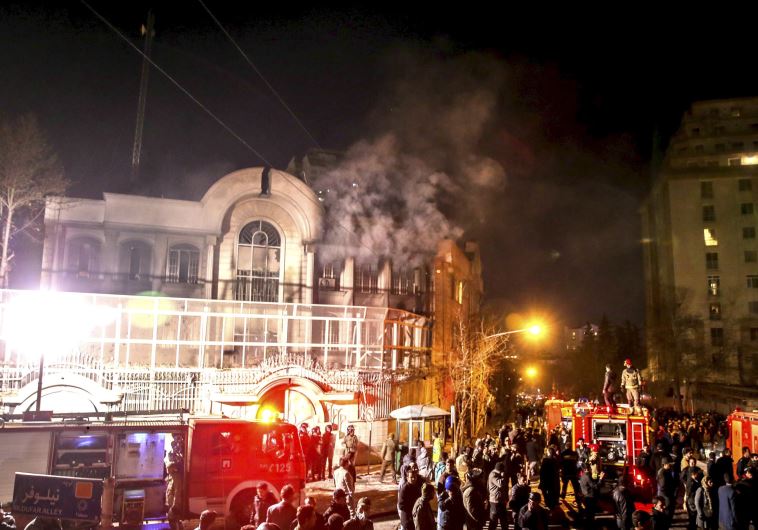Borderline Views: The enemy of my enemy is my enemy
In 30 years of being privileged to live in this amazing country, I don’t remember greeting a New Year with such pessimism.
 Flames rise from Saudi Arabia's embassy during a demonstration in Tehran January 2, 2016
Flames rise from Saudi Arabia's embassy during a demonstration in Tehran January 2, 2016